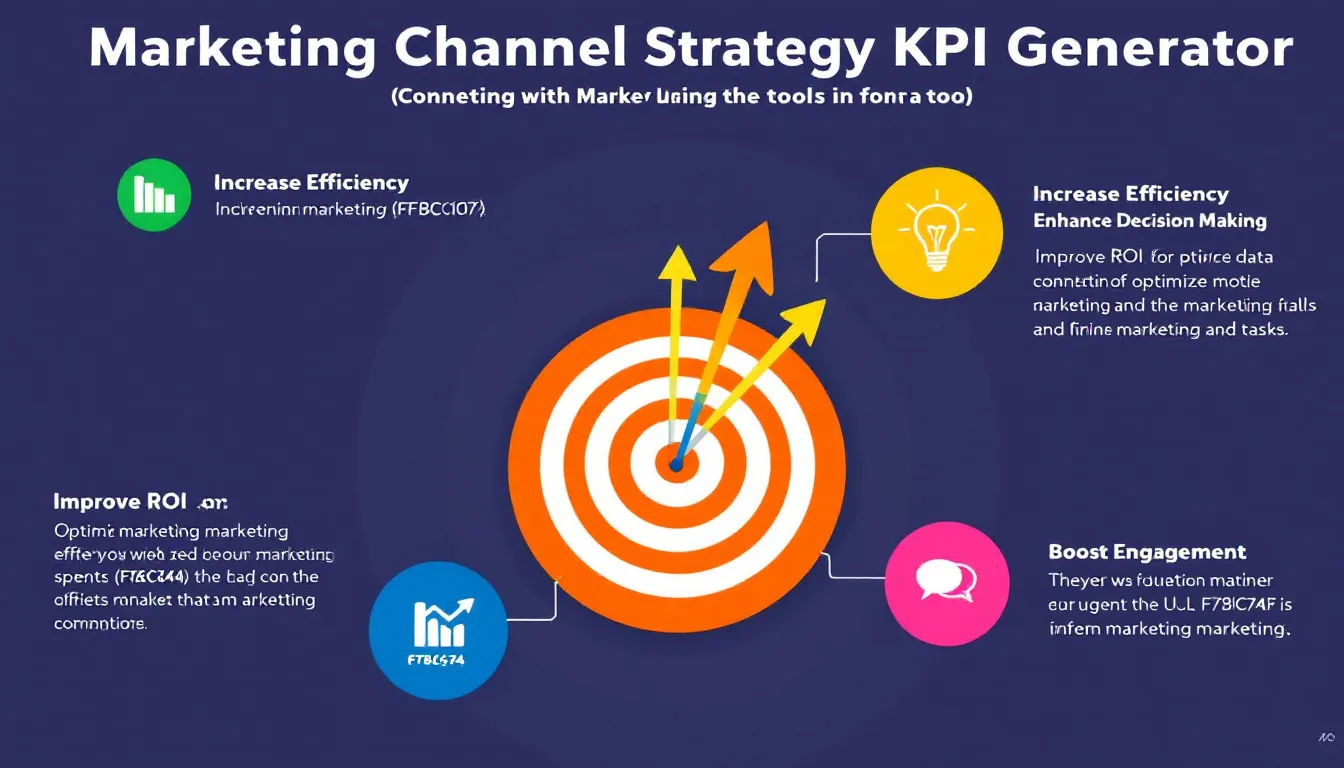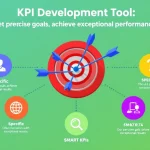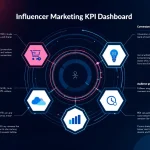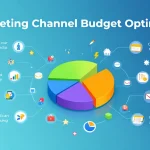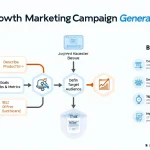Is this tool helpful?
How to Use the Marketing Channel Strategy KPI Generator Effectively
Follow these clear steps to get the most from this KPI generator tailored to your unique marketing strategies:
-
Detailed marketing channel strategy description: Clearly describe your marketing plan. For example:
- “Launch a targeted influencer campaign combined with geo-fenced mobile ads and SEO content to attract local customers.”
- “Develop a referral program alongside webinars and PPC ads aimed at small business owners.”
-
Key business goals linked to your strategy: Specify measurable objectives to guide KPI generation. Examples include:
- “Grow email list by 15,000 subscribers within six months and increase webinar sign-ups by 40%.”
- “Boost mobile app downloads by 35% and improve customer retention rate by 10% over the next quarter.”
-
Target audience overview (Optional): Describe your ideal customers to refine KPI suggestions. For example:
- “Young professionals aged 22-30 interested in eco-friendly tech gadgets.”
- “Mid-career managers focused on leadership development and productivity tools.”
-
Budget allocations or limitations (Optional): State your financial framework if relevant. Examples include:
- “Monthly digital marketing budget capped at $8,000 prioritizing paid social ads.”
- “Annual advertising budget of $120,000 focusing on video content and influencer partnerships.”
Once you fill in these fields, click the Generate KPIs and Analysis button. The tool will quickly produce a tailored list of critical Key Performance Indicators, helping you measure and enhance your marketing impact.
Understanding the Marketing Channel Strategy KPI Generator: Definition, Purpose & Benefits
This KPI generator is designed to help you identify the most relevant metrics for evaluating marketing channel performance. By inputting your channel strategy, business goals, audience details, and budget, you receive personalized KPIs that align with your unique objectives.
Using the right KPIs ensures you measure meaningful results, spot improvement areas, and make data-driven adjustments that improve campaign success.
Key Benefits of This KPI Generator
- Saves Time: Quickly produces a relevant KPI list, so you spend less time deciding what to track.
- Delivers Expert Guidance: Offers KPI suggestions based on industry standards and marketing best practices.
- Ensures Holistic Measurement: Covers metrics from awareness to conversions and retention.
- Adapts to Your Needs: Updates KPIs based on your changing strategies and goals.
- Supports Data-Driven Decisions: Helps you rely on accurate metrics instead of guesswork.
Practical Usage of the KPI Generator for Marketing Channel Strategies
This tool is ideal for marketers, business owners, and strategists who want to efficiently identify actionable KPIs tailored to their marketing efforts. It works by processing your inputs and returning a curated list of KPIs relevant to your specific campaign.
Example Scenario 1: Local Restaurant Launch Campaign
- Strategy: “Run Facebook and Instagram ads combined with email newsletters featuring grand opening promotions.”
- Goals: “Attract 1,000 new customers in three months and increase newsletter sign-up rate by 20%.”
- Target Audience: “Food enthusiasts aged 25-40 living within a 10-mile radius.”
- Budget: “$4,000 monthly budget emphasizing paid social ads.”
The generator may return KPIs such as customer footfall rate, social media engagement rate, email open and click-through rates, cost per acquisition (CPA), and local ad reach metrics.
Example Scenario 2: SaaS Product Lead Nurturing
- Strategy: “Utilize content marketing with blog posts, webinars, and LinkedIn advertising targeted at enterprise clients.”
- Goals: “Generate 1,200 qualified leads over the next quarter and improve webinar attendance rate by 30%.”
- Target Audience: “IT managers and CIOs in mid-sized tech companies.”
- Budget: “$15,000 quarterly budget focused on content creation and paid ads.”
Suggested KPIs might include marketing qualified leads (MQLs), webinar registration and attendance rates, LinkedIn ad click-through rate, content engagement time, and cost per lead (CPL).
Analyzing and Leveraging Your Generated KPIs for Strategy Improvement
Understanding how to interpret these KPIs is essential to optimizing your marketing channel strategy. Here’s how you can use the KPI data effectively:
1. Set Clear Baselines and Target Benchmarks
Measure your current performance to establish baselines. Then, set quantitative targets for each KPI based on your objectives. This helps you track progress clearly.
2. Monitor KPIs Regularly
Check your KPIs weekly or monthly to detect trends, successes, and areas needing adjustment. Consistent monitoring leads to timely improvements.
3. Analyze Cross-Channel Interactions
Identify how KPIs from different channels relate to one another. For example, increased social media engagement may boost email conversions. Understanding these links provides a fuller picture.
4. Implement A/B Testing Based on KPI Insights
Use your KPIs to evaluate different campaign versions, allowing you to select strategies that perform best based on real data.
5. Utilize Predictive Analytics
Over time, analyze KPI patterns to forecast future performance. This helps anticipate challenges and adjust your plans proactively.
Frequently Asked Questions About Marketing Channel KPI Generation
Q1: How often should I revise my KPIs?
Review and update your KPIs at least quarterly or whenever your marketing goals or strategies change to keep them relevant and actionable.
Q2: Can I use the same KPIs for different marketing channels?
Some KPIs apply broadly, but pairing them with channel-specific metrics offers better insight into each channel’s performance.
Q3: How many KPIs should I focus on?
Concentrate on 5-10 KPIs to maintain clarity and actionability without overwhelming your reporting and analysis.
Q4: What if I don’t fully understand some suggested KPIs?
Research each KPI or consult marketing professionals. The tool aims to suggest KPIs aligned with your inputs, but understanding each metric maximizes their value.
Q5: Is this tool suitable for both short- and long-term marketing plans?
Yes. Whether you run a short campaign or develop a long-range strategy, the generator adapts KPI recommendations to fit your timeframe and goals.
Important Disclaimer
The calculations, results, and content provided by our tools are not guaranteed to be accurate, complete, or reliable. Users are responsible for verifying and interpreting the results. Our content and tools may contain errors, biases, or inconsistencies. Do not enter personal data, sensitive information, or personally identifiable information in our web forms or tools. Such data entry violates our terms of service and may result in unauthorized disclosure to third parties. We reserve the right to save inputs and outputs from our tools for the purposes of error debugging, bias identification, and performance improvement. External companies providing AI models used in our tools may also save and process data in accordance with their own policies. By using our tools, you consent to this data collection and processing. We reserve the right to limit the usage of our tools based on current usability factors.
